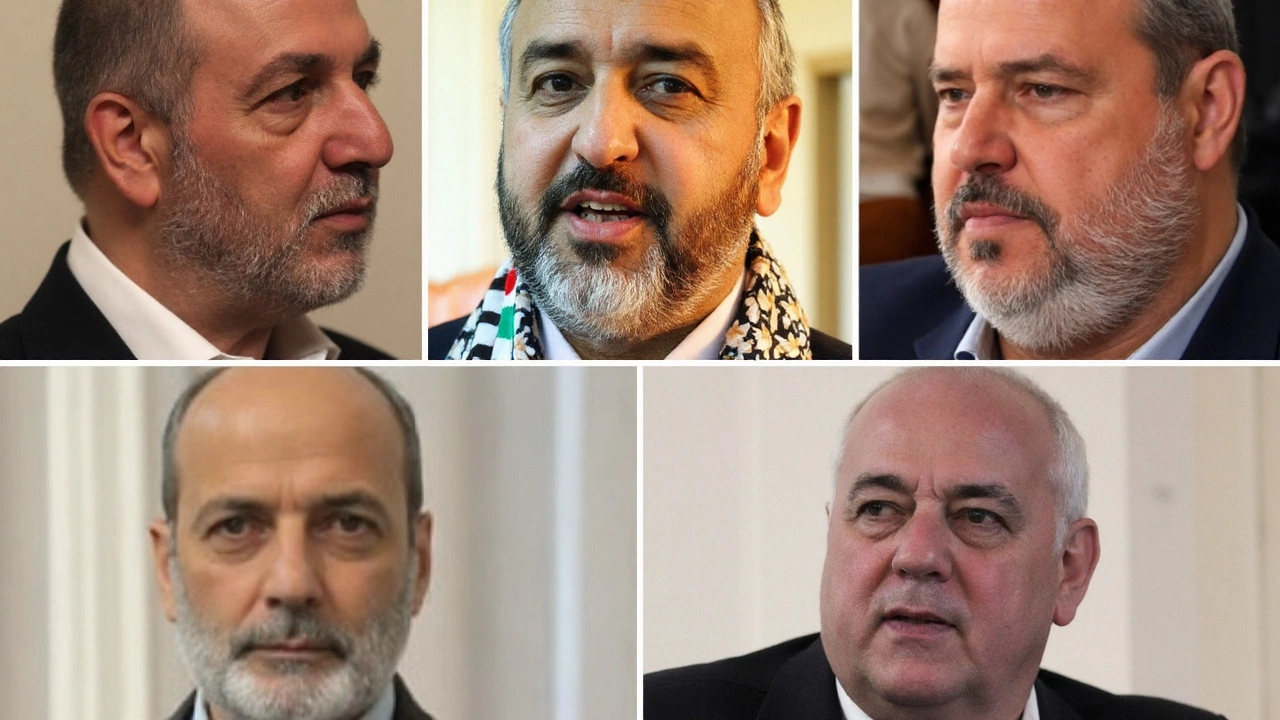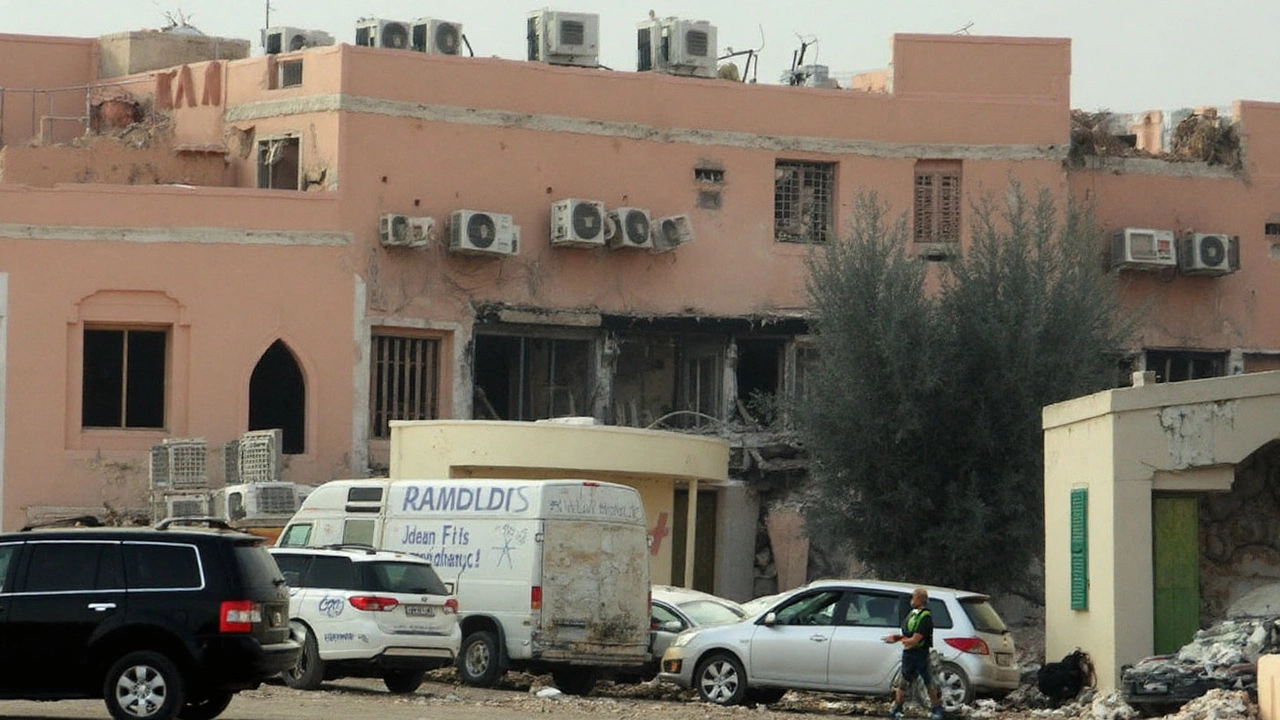What happened and why the White House pushed back
A close U.S. ally was hit in the middle of sensitive talks. The White House publicly criticized an Israeli strike in Qatar that targeted Hamas figures in a section of Doha, just as negotiations over a Gaza hostage exchange and a ceasefire were moving, with Qatar serving as the main go-between.
White House Press Secretary Karoline Leavitt told reporters the U.S. military notified the administration that Israel was carrying out an attack in Doha. According to Leavitt, President Trump then directed his envoy, Steve Witkoff, to alert Qatari officials ahead of the strike. The message from the podium was blunt: bombing inside a sovereign partner that is “working very hard” to mediate does not advance U.S. or Israeli goals, even as the administration says the objective of dismantling Hamas remains legitimate.
Trump followed that with phone calls to Israeli Prime Minister Benjamin Netanyahu and to Qatar’s emir and prime minister. U.S. officials say he offered assurances to Doha that this would not happen again on Qatari soil. In a post that matched the White House line, Trump publicly distanced himself from the decision, saying the strike was ordered by Netanyahu, not by him.
This is a rare public rebuke from Washington aimed at Jerusalem on an operational decision, and it comes after months of awkward moments between the two leaders. Back in July, Trump said there was “real starvation” in Gaza, contradicting Netanyahu’s denials, even as Trump kept backing Israel’s military campaign, including the push into Gaza City that ramped up last week with a wave of demolitions against high-rises.
The timing is what makes this episode so combustible. Qatar has been central to indirect talks between Israel and Hamas since the Oct. 7 attacks. Any strike in Doha risks spooking a mediator the U.S. needs, complicating a hostage deal that officials describe as in “deep negotiations.” It also puts a spotlight on the practical question that hangs over every covert operation in a third country: how do you neutralize a target without blowing up the diplomacy around it?
We don’t yet have a full official account of the target set, casualties, or the extent of damage. Israeli officials did not immediately comment publicly on the operation or on whether they coordinated with Doha beyond the U.S. warning. Qatari authorities have not released a detailed casualty report. The White House’s emphasis on sovereignty and warning protocols suggests Washington was trying to contain fallout in real time.

Why Qatar’s role and the regional stakes matter
Qatar is not just a mediator; it’s a host to players on all sides of this conflict. It has kept channels open with Hamas for years and has used that access to broker exchanges and pauses in fighting, including during the November 2023 truce that freed dozens of hostages. The U.S. also relies on Qatar for hard power and logistics. Al Udeid Air Base outside Doha is the largest American base in the Middle East and a hub for operations across the region.
That dual role is why a strike in Doha is so sensitive. From Qatar’s perspective, any foreign attack on its territory is a breach of sovereignty. From Israel’s perspective, Hamas leaders operating in safe havens beyond Gaza remain a strategic threat. Washington sits in the middle, needing both Qatar’s mediation and Israel’s security cooperation. Publicly criticizing Israel’s decision while reaffirming the goal of defeating Hamas is an attempt to keep all three tracks—security, diplomacy, and alliance management—moving at once.
There’s also a legal and diplomatic layer. International law generally bars the use of force in another country without consent or a clear self-defense case. Even when a target is tied to a group like Hamas, strikes on third-country soil can set precedents other states may cite later. U.S. officials appeared determined to signal that they did not authorize or endorse the location of this hit, and that they acted to warn the host nation to limit the risk of a wider rupture.
All of this lands during a delicate phase. U.S. officials say negotiations with Hamas over a hostage and ceasefire package are deepening. Doha’s clout depends on its ability to keep both sides engaged. Any perception that Qatar cannot guarantee basic security inside its capital could make talks harder—or push Hamas figures to go further underground, complicating contact and verification steps that are crucial to any deal.
The political signal to Israel is just as clear. The White House is drawing a line on operations that create fresh diplomatic crises for U.S. partners—especially when those partners are carrying the water in negotiations Washington wants to succeed. It’s not a break with Israel’s war aims. It is a warning about method and venue, issued at the highest level and paired with a promise to an ally who hosts thousands of U.S. personnel.
Trump’s move to say, “This was Netanyahu’s call,” is also about owning the process going forward. If Washington is going to be the guarantor of any ceasefire-and-hostage package, it needs to convince Qatar that its good-faith mediation won’t invite strikes on its own streets. It also needs Israel to weigh not just the tactical value of a hit but the strategic cost to the larger deal.
What changes next? Watch for three immediate signals: Doha’s formal response, any public comment from the Israel Defense Forces or the prime minister’s office about coordination, and whether the rhythm of the hostage talks slows or stops.
Key things to watch in the coming days:
- Ceasefire and hostage talks: Do Qatari mediators pause, press on, or demand new guarantees from the U.S. and Israel?
- Israeli decision-making: Does Jerusalem limit operations on third-country soil while talks are active, or does it maintain its current posture?
- Qatar’s diplomatic steps: Protest note, public condemnation, or quiet engagement? Any move to condition mediation on assurances of non-repetition would be significant.
- U.S.–Israel friction management: More public distance, or a return to private channels with tighter operational deconfliction?
There are still big unknowns:
- Target specifics: Which Hamas figures were in the crosshairs, and were they hit?
- Casualties and damage: Local impact in Doha and any civilian harm.
- Coordination: Whether Qatar gave any form of consent, even tacit; whether Israel provided prior notice to Washington beyond what the U.S. says it received from the military.
- Negotiation impact: Whether Hamas uses the incident to harden demands or to stall.
The broader context is hard to ignore. Israel is pushing deeper into Gaza’s urban core, demolishing towers it says house militants and command nodes. Humanitarian conditions remain dire, and that shapes U.S. politics as much as it shapes policy. Trump’s earlier comments about hunger in Gaza put daylight between him and Netanyahu, but he hasn’t shifted away from backing Israel’s campaign. That mix—support paired with criticism of how and where Israel acts—defines the White House posture right now.
For Qatar, the calculation is practical. It wants to keep its mediator role, protect its sovereignty, and preserve its security reputation. Warning shots like this—literal and diplomatic—raise the cost of staying in the middle. But as long as Doha retains leverage with Hamas and access to Washington, it remains the only venue where a complex deal can come together. The White House knows it, Israel knows it, and Hamas knows it too.
One more piece to watch: U.S. military posture at Al Udeid. Any visible change in alert status, air traffic, or public statements about force protection would hint at concerns about retaliation or instability. No such moves have been announced so far, but regional dynamics can shift quickly after a strike outside the main battlefield.
Bottom line on the politics: the administration is trying to keep the focus on a hostage-and-ceasefire package while signaling there are limits to what it will quietly accept when U.S. partners are put at risk. How Israel adapts—and how Qatar responds—will tell us if the talks bend or break.
